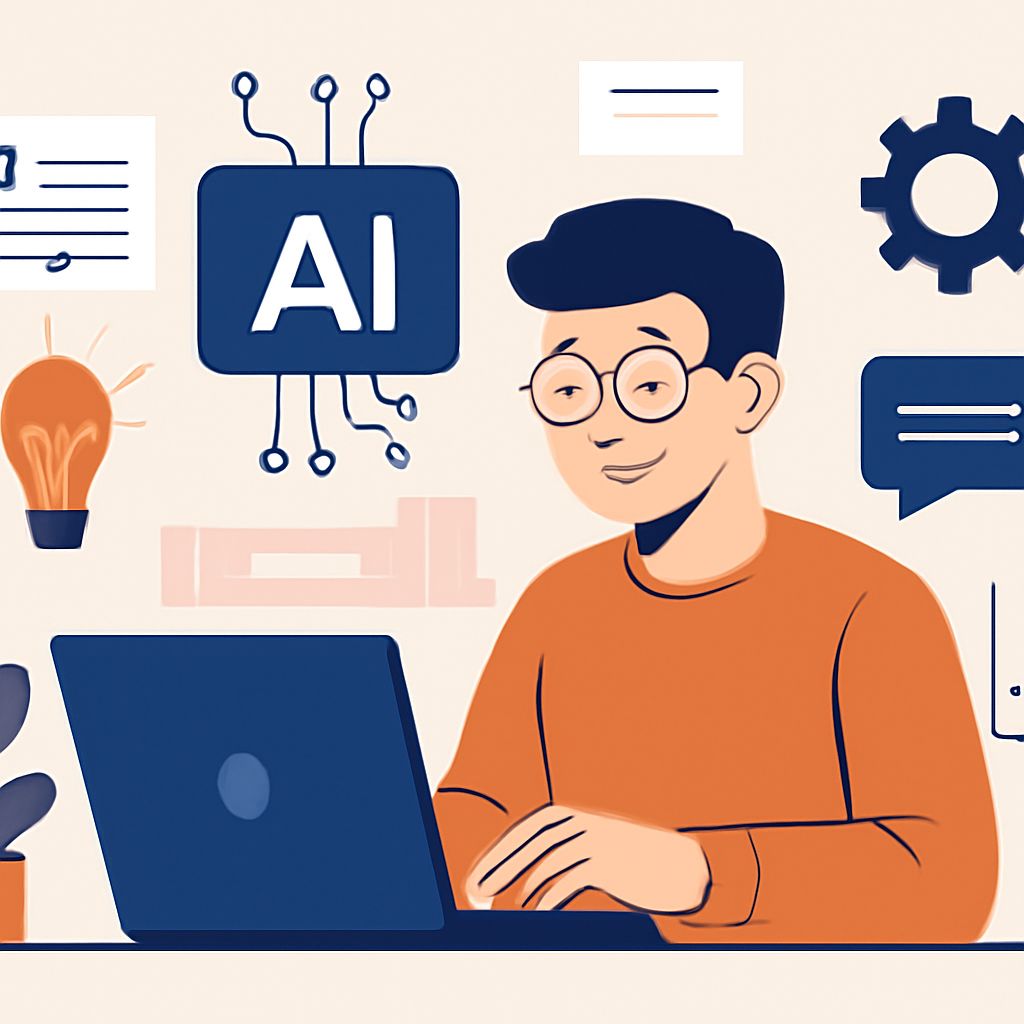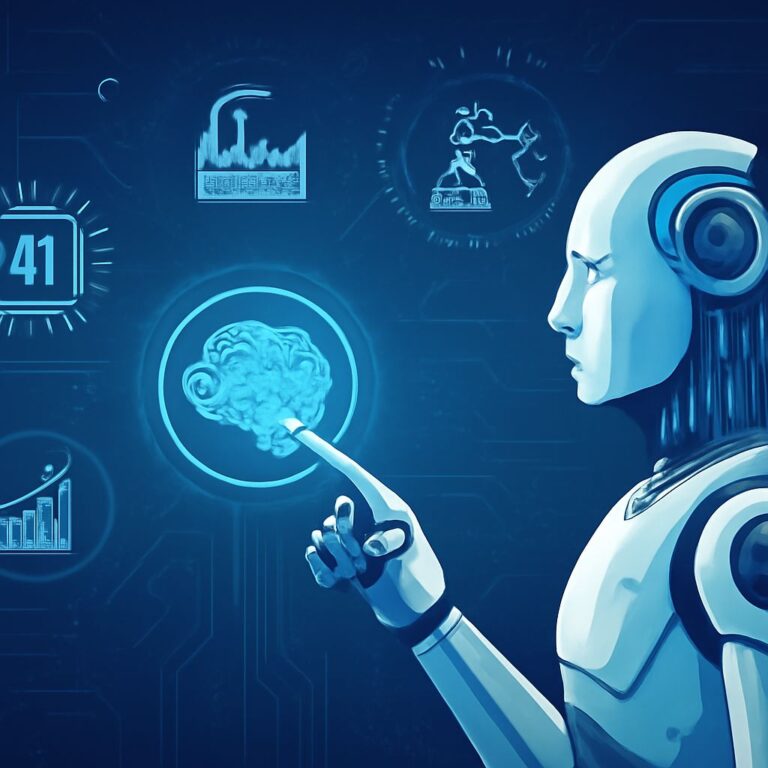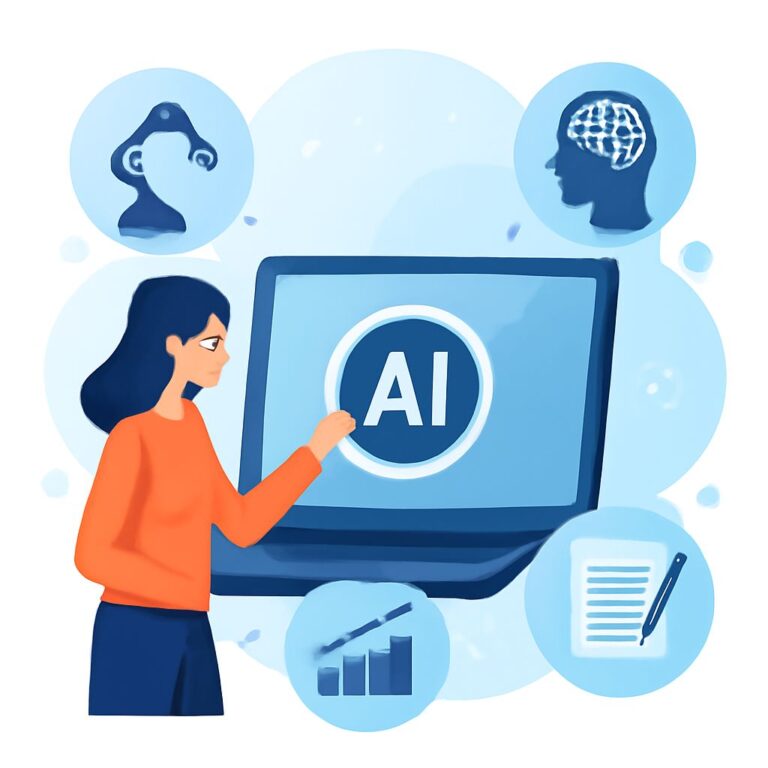Table of Contents
Revolutionizing Work: A New Era with AI Tools
In today’s fast-paced world, productivity is the cornerstone of success. Organizations and individuals are constantly seeking ways to optimize their work processes and achieve greater efficiency. Enter AI tools, the groundbreaking technologies that are revolutionizing productivity across various sectors. By automating routine tasks, providing data-driven insights, and enhancing decision-making processes, AI tools are not just the future—they’re the present.
These tools range from sophisticated machine learning algorithms to intuitive software designed for everyday use. Let’s delve into some of the most impactful AI tools that you should consider integrating into your workflow.
The Impact of AI on Productivity
The primary benefit of AI tools lies in their capacity to handle tasks that were traditionally labor-intensive or time-consuming. This allows human resources to focus on more strategic initiatives:
- Automation: AI tools automate repetitive tasks, freeing up time for employees to concentrate on creative and complex tasks. This also helps in minimizing human error in processes that require high precision.
- Data Insights: They analyze vast amounts of data swiftly, providing actionable insights that inform better business decisions. This means businesses can make informed decisions backed by real-time data, leading to potentially greater success and growth.
- Cost Efficiency: By reducing the time spent on mundane tasks, businesses can cut operational costs significantly. AI tools often result in a quicker return on investment due to the efficiency they bring into workflows.
- Employee Satisfaction: By automating monotonous jobs, employees can focus on more fulfilling tasks, potentially leading to a more satisfied and motivated workforce.
Top AI Tools to Enhance Your Productivity
Let’s explore some of the top AI tools that are making waves in the productivity landscape:
- Trello with Butler: This integration enhances the basic functionality of Trello boards by automating workflows, scheduling card actions, and much more with the power of AI. By doing so, it helps teams to streamline their project management efforts, ensuring that everyone remains on the same page without the repetitive manual input.
- Grammarly: More than just a spell-checker, Grammarly uses AI to help users write clear and effective content by suggesting improvements in style and tone. It also provides insights into your writing style, making it easier to maintain a consistent voice across multiple platforms.
- Zapier: As a connector of apps and services, Zapier uses AI to automate your workflows, enabling apps to talk to each other and execute tasks without manual intervention. This allows businesses to create seamless processes that would otherwise require significant time and effort to manage manually.
- Hootsuite Insights: Using AI to analyze social media trends, Hootsuite provides businesses with timely insights that shape marketing strategies and customer engagement efforts effectively.
- Slack with AI-Powered Bots: Slack’s integration with AI bots helps in managing communications smartly by sorting messages and providing quick access to relevant documents and data. This keeps team interactions efficient and organized.
Advanced AI Tools for Specialized Applications
Beyond general productivity enhancements, AI tools are also making significant impacts in specialized fields:
- IBM Watson: Known for its cognitive computing capabilities, IBM Watson offers AI solutions personalized across industries, from healthcare to finance, providing insights and predictive analytics to drive business outcomes.
- Salesforce Einstein: Designed for customer relationship management, Einstein uses AI to provide predictive analytics about customer behavior, assisting sales teams in tailoring their approaches for better results.
- Bloomberg Terminal: Using AI, this platform provides real-time financial market data, news, and tools necessary for professional finance and investment analysis, remaining an invaluable tool for financial experts.
The Future of AI Tools in the Workplace
The integration of AI tools into workplaces is just beginning. As these tools become more sophisticated, we can expect them to take on more nuanced roles:
AI will likely not just assist in day-to-day operations but also help strategize and innovate, as machine learning algorithms continue to learn and adapt from the vast quantities of data they process. Furthermore, AI systems can start predicting trends with greater accuracy, thereby assisting companies in crafting better long-term strategies.
Overcoming Challenges with AI Tools
While AI tools offer substantial productivity benefits, they also come with challenges that need addressing:
- Data Privacy: With AI’s reliance on large data sets, ensuring user data privacy and protection remains a significant concern.
- Integration and Compatibility: Ensuring that AI tools can be integrated seamlessly with existing systems requires planning and sometimes additional investments.
- Workforce Training: As AI tools evolve, businesses must provide ongoing training for employees to keep up with new features and functionalities.
FAQ
What are AI tools?
AI tools are software applications that use artificial intelligence to perform tasks and processes that typically require human intelligence. These include tasks such as decision making, voice recognition, translation, and data analysis among others.
How can AI tools enhance productivity?
AI tools enhance productivity by automating routine tasks, offering data-driven insights, reducing human error, and saving time, which allows humans to focus on more strategic and creative activities. The ability of AI to learn and adapt creates opportunities for continuous improvement and efficiency.
Are AI tools expensive to implement?
While some AI tools require significant investment, many offer scalable pricing, and some are even free for basic use. The return on investment through increased efficiency and cost savings often outweighs the initial outlay. Organizations should evaluate their specific needs to choose the most appropriate tools.
Can AI tools be customized?
Many AI tools offer customization options that allow businesses to tailor their functionality to specific needs, enhancing their value and effectiveness within varied contexts. This customization ensures that the tools provide maximum benefit by aligning closely with strategic business objectives.
What is the future of AI tools in terms of innovation?
The future of AI holds immense potential for innovation across all industries. As AI technologies advance, we can expect more powerful algorithms capable of solving complex problems, smart automation, and technologies that promote energy efficiency and sustainability. This progress will drive transformations in how we work and live.









